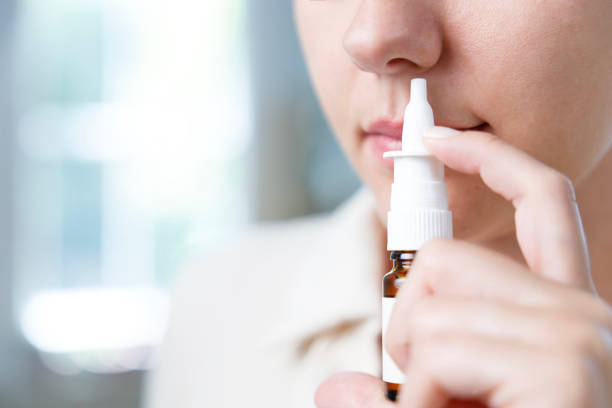USP Inhaler Flow Resistance Testing
The United States Pharmacopeia (USP) inhaler flow resistance testing is a critical quality assurance procedure aimed at ensuring the proper functionality and safety of inhalers. This test evaluates how well an inhalation device delivers medication, which is essential for patient safety and effective treatment outcomes.
During this process, the device is subjected to various pressures within specified ranges to measure its flow resistance. The goal is to ensure that the inhaler delivers the prescribed dose accurately under different conditions. This procedure adheres to USP guidelines, specifically General Chapter <1206> Inhalation Aerosol Delivery Systems.
The testing involves several steps:
- Preparation of the inhaler for testing.
- Application of standardized pressures.
- Measurement of the delivered dose at different flow rates.
- Evaluation against USP criteria to determine compliance.
This test is crucial because it helps identify potential issues with the delivery system that could affect patient health. Inadequate flow resistance can lead to insufficient or excessive medication release, which may result in ineffective treatment or adverse effects. By ensuring consistent performance across devices, this testing contributes significantly to public health.
It's important to note that USP inhaler flow resistance testing is not just about measuring the flow rate but also ensures that the device maintains a steady and reliable delivery mechanism throughout its lifecycle. This reliability is paramount for patients who depend on these inhalers for their daily medication.
The test equipment used in this process includes sophisticated manometers, volumetric spacers, and precision pressure gauges, all calibrated to meet USP specifications. These instruments are integral to obtaining accurate measurements that reflect real-world usage conditions.
In conclusion, USP inhaler flow resistance testing is an indispensable part of ensuring the quality and safety of inhalation products. It plays a vital role in maintaining compliance with international standards and safeguarding patient health by delivering consistent and effective medication doses.
Why It Matters
The importance of USP inhaler flow resistance testing cannot be overstated, as it directly impacts the efficacy and safety of inhalation products. Ensuring that these devices deliver medications accurately is crucial for several reasons:
- Patient Safety: Inadequate flow rates can lead to under-delivery or over-delivery of medication, both of which pose significant risks.
- Efficacy: Consistent delivery ensures that patients receive the correct dosage every time, enhancing treatment outcomes.
- Regulatory Compliance: Adherence to USP standards is mandatory for manufacturers and helps maintain their credibility in the market.
- Patient Trust: Reliable products build trust with healthcare providers and patients alike.
The testing process not only ensures that inhalers function as intended but also provides valuable data for continuous improvement. This information can be used to refine design and manufacturing processes, leading to even more effective and safer inhalation devices in the future.
Industry Applications
Inhaler flow resistance testing finds application across various sectors within the pharmaceutical industry:
- R&D Engineers: They use this test to design inhalers that meet stringent performance criteria.
- Quality Managers: They rely on these tests to ensure consistency and quality in production batches.
- Compliance Officers: These professionals make sure all products adhere strictly to regulatory guidelines like USP standards.
The results of this testing are critical for ensuring that inhalers perform reliably under a wide range of conditions, thereby enhancing the overall quality and safety profile of these products. This is particularly important in sectors where patient health is paramount, such as respiratory care and chronic disease management.
Why Choose This Test
- Avoids Adverse Effects: Ensures that patients receive the correct dosage of medication, reducing the risk of side effects.
- Sustains Consistency: Guarantees that each inhaler functions uniformly across different batches and over its lifecycle.
- Enhances Reputation: Compliance with USP standards enhances brand reputation and market credibility.
- Promotes Innovation: Provides insights for improving product design and enhancing performance.
Selecting this test ensures that inhalers meet the highest standards of quality and safety, thereby contributing to better patient care. It also helps in maintaining a strong regulatory compliance posture, which is essential in the pharmaceutical industry.





